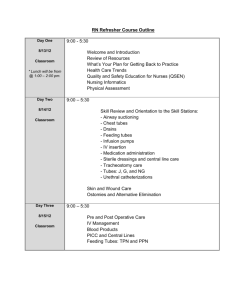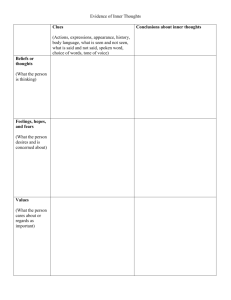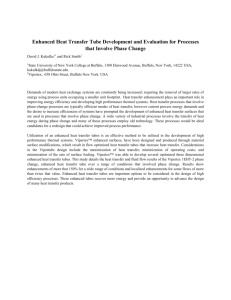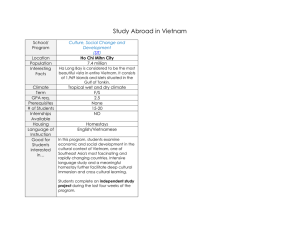Project Planning 1. Nominal Group Technique •
advertisement
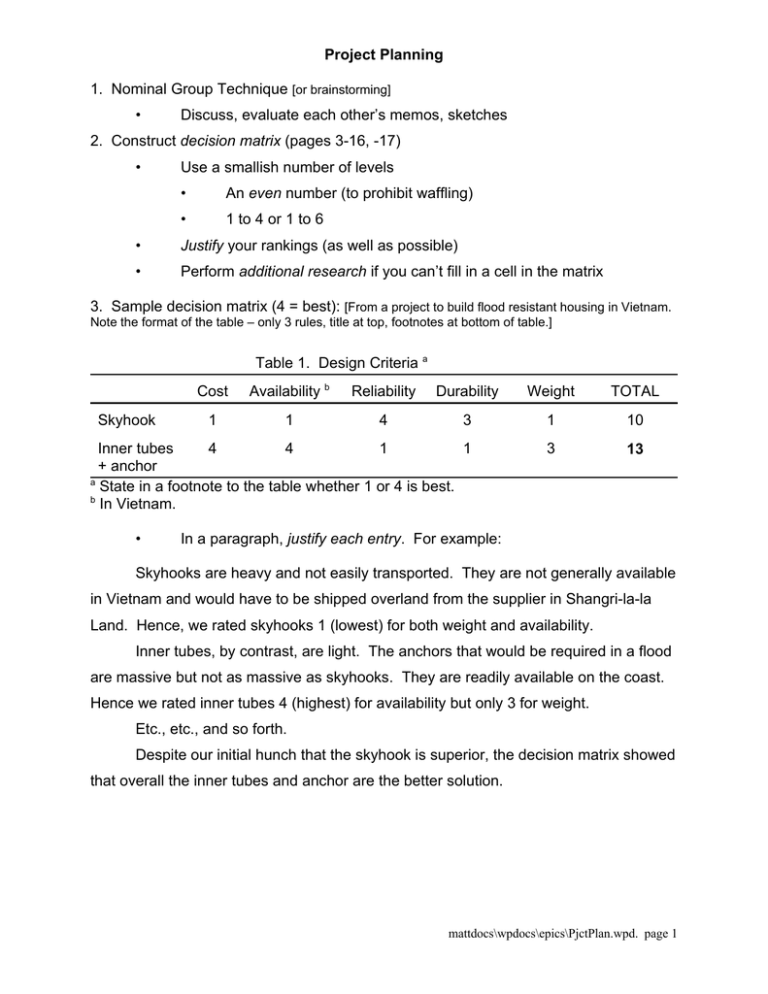
Project Planning 1. Nominal Group Technique [or brainstorming] • Discuss, evaluate each other’s memos, sketches 2. Construct decision matrix (pages 3-16, -17) • Use a smallish number of levels • An even number (to prohibit waffling) • 1 to 4 or 1 to 6 • Justify your rankings (as well as possible) • Perform additional research if you can’t fill in a cell in the matrix 3. Sample decision matrix (4 = best): [From a project to build flood resistant housing in Vietnam. Note the format of the table – only 3 rules, title at top, footnotes at bottom of table.] Table 1. Design Criteria a Cost Availability b Reliability Durability Weight TOTAL 1 1 4 3 1 10 Inner tubes 4 4 1 1 + anchor a State in a footnote to the table whether 1 or 4 is best. b In Vietnam. 3 13 Skyhook • In a paragraph, justify each entry. For example: Skyhooks are heavy and not easily transported. They are not generally available in Vietnam and would have to be shipped overland from the supplier in Shangri-la-la Land. Hence, we rated skyhooks 1 (lowest) for both weight and availability. Inner tubes, by contrast, are light. The anchors that would be required in a flood are massive but not as massive as skyhooks. They are readily available on the coast. Hence we rated inner tubes 4 (highest) for availability but only 3 for weight. Etc., etc., and so forth. Despite our initial hunch that the skyhook is superior, the decision matrix showed that overall the inner tubes and anchor are the better solution. mattdocs\wpdocs\epics\PjctPlan.wpd. page 1
